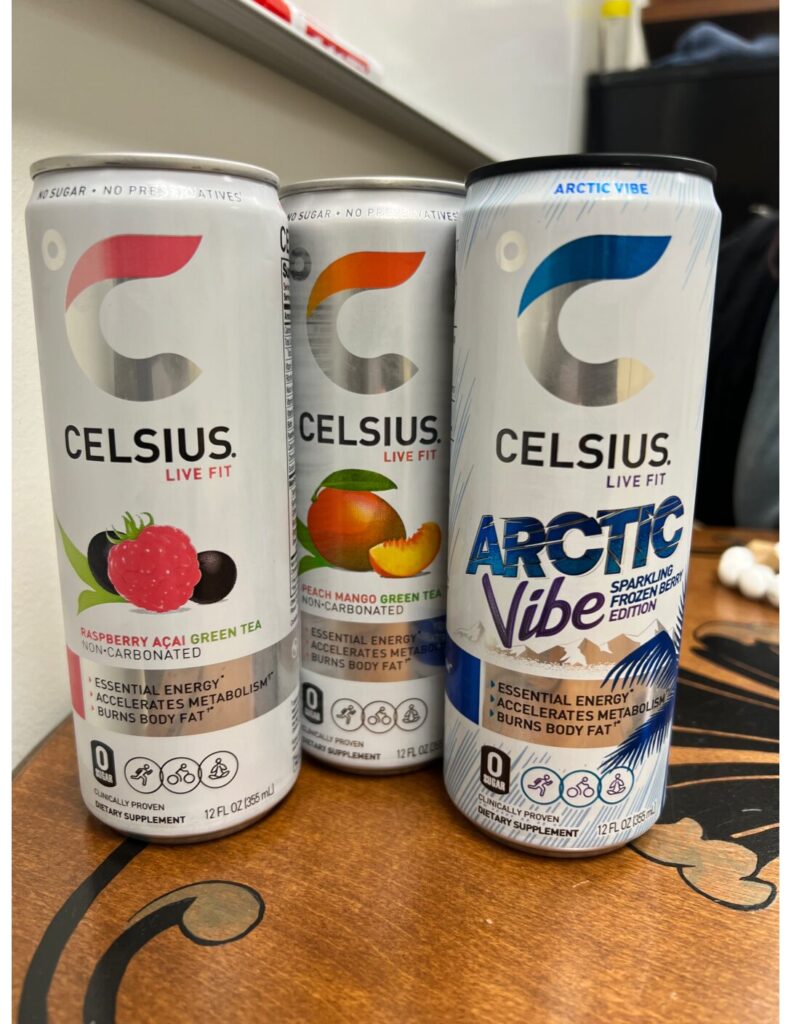
Caffeine high bringing athletic careers low into the Celsius
Casey Burton, Sports Editor
Being a college athlete can be tiring, and just like every other student, they may need some extra help getting through the semester. This is when caffeine enters the chat.
It’s no secret that many students on college campuses rely on caffeine to help wake up for that treacherous 8a.m. class. Athletes, however, may rely on caffeine in other ways. Ways such as amping themselves up for practice or an early game.
Caffeine is a natural stimulant. It varies in many forms, coffee, energy drinks, tea, chocolate, etc. People become caffeine dependent from as little as toddlers because of their favorite chocolate candy bar. Due to the dopamine in caffeine, it is highly addictive.
Matt Bradshaw, retail worker in the North Greenville University’s 1892 store said, “Between all the people walking in to make themselves a cup of coffee and who buy all the energy drinks, I would say about 85% of sales are just people wanting caffeine to wake up through the day.”
He also mentioned how the top energy drinks students are buying are Celsius and Monster energy drinks. He even realized that those buying the energy drinks are mostly athletes.
“When the NCAA put the ban on guarana seeds, we didn’t know if we should stop selling Celsius drinks, but after contacting Pepsi, it was said to be okay,” Bradshaw said.
This kind of caffeine dependency can cause some issues. Coaches and athletic directors at NGU have been cautious about what their athletes are putting in their bodies and making sure they are taking care of themselves.
But athletes still didn’t monitor their caffeine intake. It wasn’t until just a few years ago, the athletes within the entire NCAA had to take the caffeine debate seriously.
As of the 2021-2022 regulation, the NCAA Banned Substance Policy stated the ban on the ingredients in the popular energy drink, Celsius. This was a big deal since the brand was just trending on TikTok and becoming huge within the college-aged female demographic.
The NCAA released a statement long before the Celsius debate, saying how athletes’ caffeine intake has been limited to 15mL a day. 15ml of caffeine is about the amount of caffeine in just one can of Celsius energy drinks. Any amount of caffeine over 15ml, is considered harmful to one’s body.
Caffeine targets the blood stream by increasing blood adrenaline levels, yet its major affect is on the brain by increasing dopamine to stimulate alertness.
According to Healthline.com, it states that because it affects your brain, caffeine is often referred to as a psychoactive drug.
Celsius drinks not only have high levels of caffeine, but also contains stimulants that are considered illegal to the NCAA, as it affects athletic performance. The stimulants are ginseng, guarana and L-carnitine taurine. All of which are banned from the National Olympic committee. In other words, if drug tested, the ingredients would be shown, and the tested athlete would fail the drug test.
The NCAA’s punishment for failing a drug test from a banned substance is the suspension of the player for an entire season or being asked to never return to the sport. This could include the taking away of student athletic scholarships.
